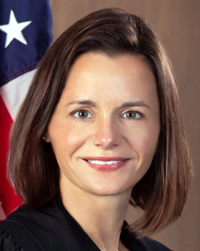
Guido Calabresi
NEW YORK - A settlement in which lawyers made four times more than their clients will be under a microscope following a recent ruling by a federal appeals court.
The U.S. Court of Appeals for the Second Circuit on July 1 ordered the trial judge to take a closer look at a class action settlement with Kimberly-Clark Corp. over wipes advertised as flushable but allegedly weren't.
The company offered up to $20 million for class members and gave the firm Robbins Geller Rudman & Dowd an extra $4 million. It sounded like a lot but by the time claims were put in, Kimberly-Clark paid out only $1 million to class members.
Professional class action objector Ted Frank, founder of the Center for Class Action Fairness, argued the fee award disproportionately favored lawyers but a New York federal judge disagreed. Frank appealed to the Second Circuit, which said the trial judge applied the wrong standard in approving it.
"Because the district court did not consider the allocation of recovery between class counsel and the class in assessing settlement fairness, as required by Rule 23(e), we vacate and remand for the district court to conduct this analysis in the first instance," Jude Guido Calabresi wrote.
"To be clear: we offer no opinion as to whether the settlement in this instant case is fair under Rule 23(e) or not."
So it will be up to Judge Pamela Ki Mai Chen to decide if lawyers making $3 million more than their clients is fair. Recently, the Third Circuit wrote that a similar disparity was, because of other factors outside of money.
Lawyers got $3.2 million in a data breach class action against Wawa while class members redeemed $2.9 million in gift cards. But the Third Circuit noted the company spent $25 million on security measures to protect consumers' information in the future (Frank argued Wawa had already spent that money before the settlement, so it shouldn't factor into the agreement's fairness).
Class members in the flushable wipes settlement could get as much as $50.60. The attorneys fees were in addition to the available $20 million, so Judge Chen found the award didn't affect the class' recovery.
The Second Circuit has now told her that Rule 23(e) requires her to consider "the allocation of recovery between class counsel and the class before approving a settlement."






